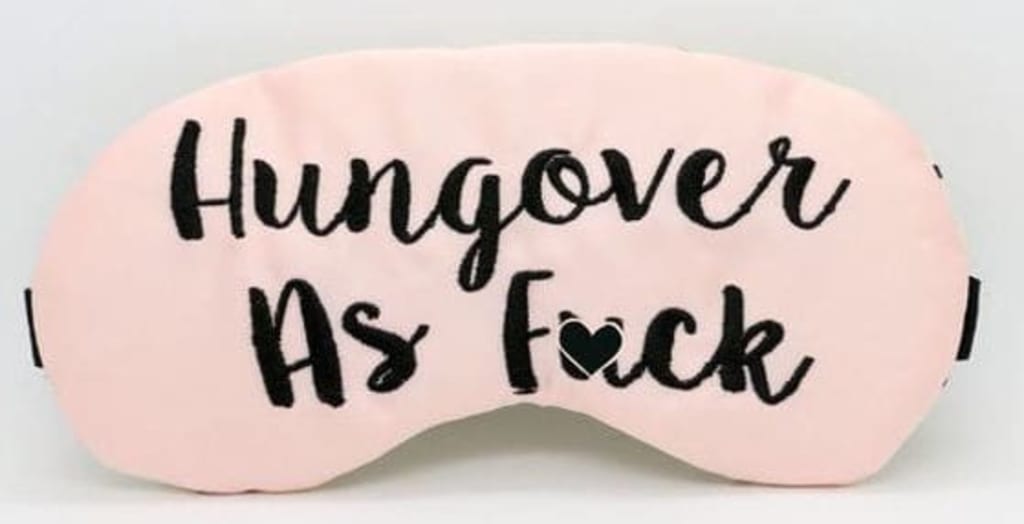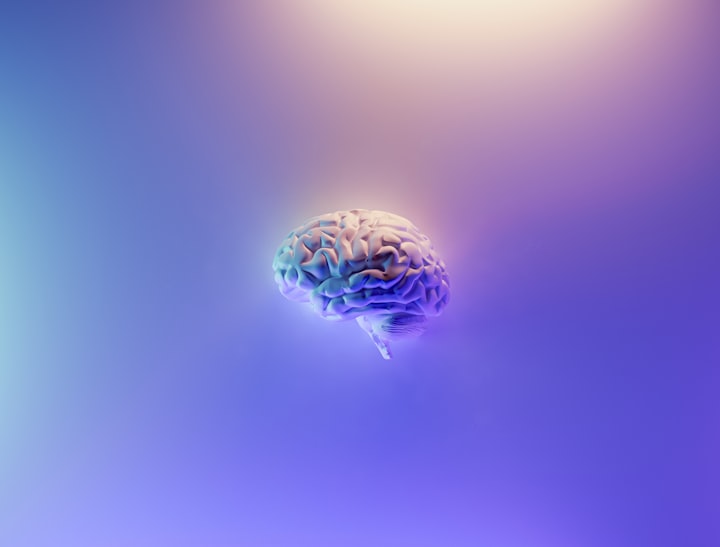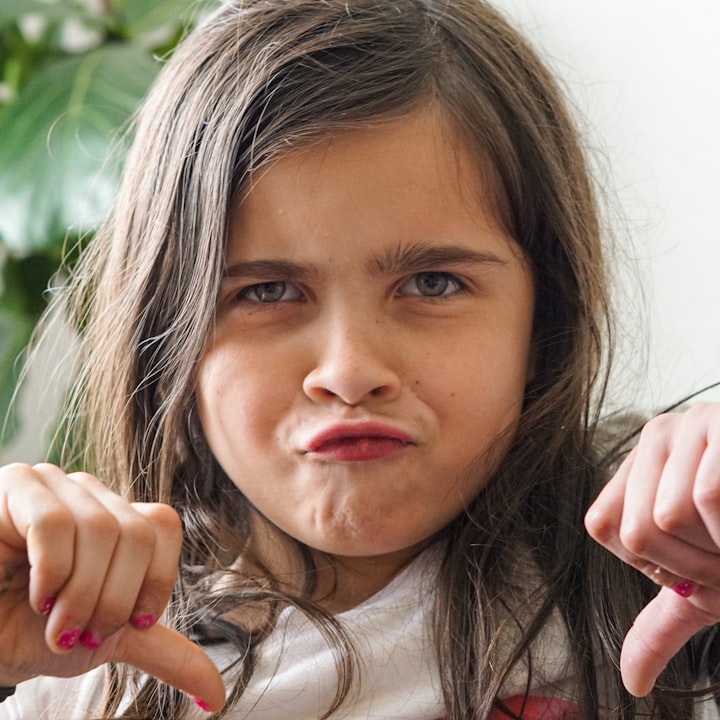Coming Out...As An Alcoholic
How I (Literally) Hit Rock Bottom

Over the years, I had given a lot of thought to quitting drinking.
The first thing that troubled me about it was the word “alcoholic,” and, worse, having to admit that I was one. I had a problem with its connotation. In my mind, alcoholics were the people that drank the mouthwash under their sink for a buzz. That wasn’t me. Plus, as long as I didn’t drive after drinking, to me that counted as drinking responsibly.
When I thought about giving up drinking, the second thing that troubled me was how it would affect me in a social setting. As one of the “party girls,” if a guest was joining us who didn’t drink, they would be slightly outside of our circle. It was understood. I personally feared the judgment of a sober person on my Friday night, sloppy-off-sangria self. When someone was 100% alcohol free, my honest thought was, “You sound like no fun at all.”
The third thing that troubled me about quitting drinking was FOMO; Fear of missing out on all of the fun that my friends would be having that seemed to require a drink in hand. I didn’t want to be the bump on a log who brought everyone’s fun time down with my sparkling water and lime, trying to fit in by deceiving everyone into thinking I was also “letting loose” just like them. I didn’t want the invites to stop. Who goes to Vegas sober? Who doesn’t drink at an open bar wedding? Who doesn’t want to go wine tasting? I had built a personality and lifestyle for myself where alcohol was diffused, pun intended, into what seemed like every part of it.
It was my outlet. As much as I dreaded facing that fact, it was. When I left the office after an emotionally taxing day, I would tell myself I had “earned” that bottle of cheap champagne. Because of course I wouldn’t drink the whole bottle – except I did.
The more that I overextended myself in my career, my networking, my board positions, my volunteering, the more I drank. The things I was telling myself I was doing as an “outlet” and “in my free time” were really driving me to drink as my outlet, both in my free time and not in my free time. Even though I recognized my triggers, I ignored them and convinced myself it was somehow still “in moderation.”
My problem was not being able to stop once I started. I simply couldn’t go out for “one drink.” It would inevitably turn into an evening of barhopping, shots, 2:00 am Uber rides, chugging water with a hangover before work at 8:00 am. On the occasions that I did go out for 3 drinks maximum, I was so proud of myself – like this was a huge achievement, even if it was only because the people I was with had nixed my after-party proposals.
In retrospect, I had never had an “off” switch once I had my first drink in hand. Even in college, if I was at a party, I would be pissed off if I was sober. As if there was no reason to be out at all if I wasn’t going to come home drunk. As I progressed through law school and the working world, alcohol became an escape. “I’ll answer that e-mail after a glass of wine,” was a real thought. Drinking was a way to celebrate the end of an exam, to lament a bad outcome in grades or work, to “ease the pain” of a break-up, or to pregame a night out.
It was everywhere. For years, I was drowning.
By age 27, I was tired. I was tired of the half-empty bottle of wine in my fridge that I drank right before heading to a board meeting. I was tired of the empty bottles in my trash, which I had to empty daily to avoid seeing numerous bottles in one trash for a single occupant apartment. I was tired of waking up with my very first question, before I had even opened my eyes, being "did I do or say anything last night that I'm going to regret?"
I always told myself that it wasn’t a big deal. As was my motto for a lot of things at the time, “it hadn’t been a problem yet.” Face it when you have to.
But a day finally came when I had to.
I had joked earlier that morning that my epitaph was going to say “and everywhere she went, a mimosa bar followed.” If I had known I would be spending that evening in the trauma unit, I would have held my tongue.
I was bleeding out of my left ear. My head was in immense pain. The last thing I remembered was getting another drink for my friends and I that we definitely did not need. A blur of faces I recognized. The next thing I remembered was sitting at a table, crying with a tissue held to my bleeding ear, telling my friend that I was going to go home. Lucky for me, I have smart friends, and I was in the emergency room shortly thereafter.
I was now "the girl at the event who fractured her skull." In more than one place. The bleeding in my brain wouldn’t go down for weeks.
The more that the medical staff and doctors questioned my drug and alcohol use, the more sheepish I became – especially with my parents in the room.
“Do you drink?”
Yes. “Socially.”
“Every day?”
Yes. “No.”
“How much did you have to drink today?”
I don’t remember today at all. “A few mimosas this morning.”
“Do you use drugs?”
What does my urine test say? “No.”
I dreaded seeing my paperwork in case my BAC was on it. I was told over and over how lucky I was. I didn’t need surgery. My hearing would come back eventually. The blood in my brain would go down. I could have been in a coma. It could have been worse.
That brought me back to my slogan. “It hasn’t been a problem yet.” I realized then that if that remained my motto, I was going to die young. I couldn’t keep saying “nothing bad has happened yet” due to my drinking. Though the hangovers, the drunk texts, the fights with friends and significant others, the bruises, scratches, and lost belongings had never amounted to a wake-up call of “this is bad, I need help” – I had officially put myself in danger this time. Saying “I’m lucky it wasn’t worse,” seemed dumb. I wasn’t lucky, I was irresponsible – I had a fractured skull due to my own inability to stop drinking excessively for ONE day.
I don’t remember the fall, I don’t remember getting up after it, I don’t remember anything I said. As I analyzed the IVs in my arms as I lay in my hospital bed, I remember being afraid that if I slept, I wouldn’t wake up.
But I did wake up. To a lot more than a hospital room.
I woke up to face the fact that I was an alcoholic. Because not all alcoholics are the ragged mug shots of drunk drivers that you see on the evening news (in their defense, they might not even be alcoholics). It can be the pretty girl next door, your teacher, your parent, even you.
I’m facing the fear of the realization as I write this. The realization that I am addicted to alcohol, and that I need to let it go before it hurts me more than it already has. At the same time, I’m afraid of missing out on experiences that my friends will get to have that I won’t. I’m afraid of not having my favorite date accompaniment, a bottle of wine to go with a picnic, a movie night, cooking dinner. I'm afraid of not being able to say no to my triggers. I’m afraid of having to give away my free drink tickets at events. I'm afraid of being left alone with alcohol. I’m afraid I’m not going to have the self control to stick with it.
But I’m also afraid of what could happen if I continue down the path I’m on. I’m afraid of not being here at all.
So there you have it. The confession of an anonymous alcoholic who has literally hit rock bottom.
About the Creator
Brooklyn Hughes
"wear your tragedies as armor, not shackles."
Follow me on Twitter: @Writingwcoffee






Comments
There are no comments for this story
Be the first to respond and start the conversation.